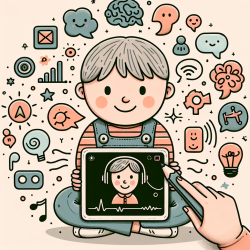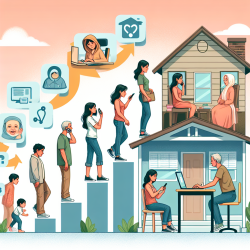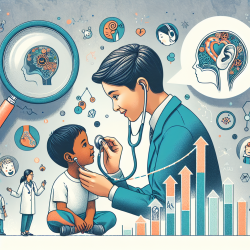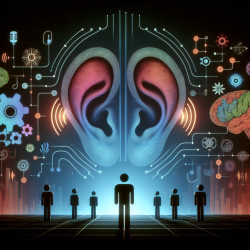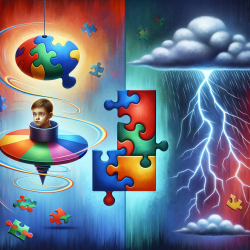In the ever-evolving landscape of child mental health, innovative digital interventions like the Eda app offer promising solutions. The research article, "A Transdiagnostic, Emotion Regulation App (Eda) for Children: Design, Development, and Lessons Learned," provides valuable insights into developing effective mental health apps for children. This blog aims to guide practitioners on how to leverage these findings to improve their practice and outcomes for children.
Understanding the Research
The study presents the development and design process of the Eda app, which targets emotion regulation in children aged 10-12 years. Emotion regulation is crucial for mental health, and enhancing these skills can lead to improvements across various mental health conditions. The app was developed using an interdisciplinary framework that incorporated input from young users, clinicians, researchers, and app developers.
Key Findings and Design Implications
- User-Centered Design: The involvement of children in the design process ensured the app was engaging and relevant. Practitioners should consider incorporating user feedback in the development of any intervention tools.
- Evidence-Based Content: The app includes modules based on cognitive behavioral therapy (CBT) principles, mindfulness, and relaxation techniques. These components are supported by strong evidence indicating their effectiveness in improving emotion regulation.
- Interactive Features: The app features games, animated films, and practice modules to engage children actively. This interactive approach can be more effective than traditional methods, especially for younger users.
Practical Applications for Practitioners
Practitioners can integrate the following strategies into their practice based on the findings from the Eda app development:
Incorporate Technology in Therapy
Using apps like Eda can complement traditional therapy methods. Encourage children to use the app to practice emotion regulation techniques outside of therapy sessions, reinforcing what they learn in sessions.
Engage Children in the Design Process
When developing new interventions or tools, involve children in the design process. Their input can provide valuable insights into what features and content will be most engaging and effective.
Utilize Evidence-Based Practices
Ensure that the interventions you use are grounded in evidence-based practices. The Eda app's use of CBT, mindfulness, and relaxation techniques provides a robust framework that can be adapted to various settings.
Encouraging Further Research
While the Eda app shows promising results, further research is needed to evaluate its long-term effectiveness and applicability in diverse settings. Practitioners are encouraged to participate in research studies or conduct their own to contribute to the growing body of evidence supporting digital interventions in child mental health.
Conclusion
Digital interventions like the Eda app represent a significant step forward in supporting children's mental health. By incorporating user-centered design, evidence-based content, and interactive features, practitioners can enhance their practice and achieve better outcomes for children.
To read the original research paper, please follow this link: A Transdiagnostic, Emotion Regulation App (Eda) for Children: Design, Development, and Lessons Learned.
